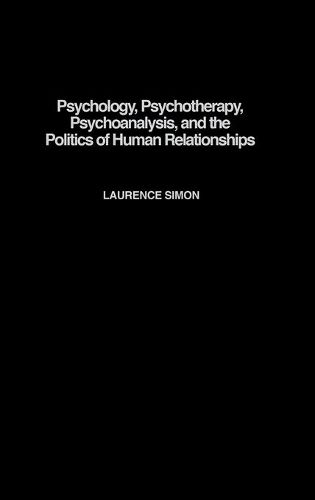Readings Newsletter
Become a Readings Member to make your shopping experience even easier.
Sign in or sign up for free!
You’re not far away from qualifying for FREE standard shipping within Australia
You’ve qualified for FREE standard shipping within Australia
The cart is loading…






This volume offers a psychology of human personality and behavior created as a function of the politics practiced by the social structure in which they are based. The interaction of individuals with authoritarian/totalitarian, democratic/humanistic and anarchistic forms of politics is examined. The focus is on the particular type of politics practiced by psychiatry, psychotherapy, and psychoanalysis, with the conclusion that these enterprises operate more along authoritarian/totalitarian than democratic/humanistic lines. Simon argues that the mental health field, as currently dominated by psychiatric thinking entrenched in the myths of mental illness, is acting as a social control agency and a force in the development of a totalitarian state. This volume aso offers a view of how psychotherapy can be used as a means to fuel democratic states for individuals.
Other works that focus on the politics of psychiatric services have also emerged since Thomas Szasz’ work, The Myth of Mental Illness, but this is the first to demonstrate the dangers of the psychiatry and therapy industries from this variety of political, religious, and scientific perspectives.
$9.00 standard shipping within Australia
FREE standard shipping within Australia for orders over $100.00
Express & International shipping calculated at checkout
This volume offers a psychology of human personality and behavior created as a function of the politics practiced by the social structure in which they are based. The interaction of individuals with authoritarian/totalitarian, democratic/humanistic and anarchistic forms of politics is examined. The focus is on the particular type of politics practiced by psychiatry, psychotherapy, and psychoanalysis, with the conclusion that these enterprises operate more along authoritarian/totalitarian than democratic/humanistic lines. Simon argues that the mental health field, as currently dominated by psychiatric thinking entrenched in the myths of mental illness, is acting as a social control agency and a force in the development of a totalitarian state. This volume aso offers a view of how psychotherapy can be used as a means to fuel democratic states for individuals.
Other works that focus on the politics of psychiatric services have also emerged since Thomas Szasz’ work, The Myth of Mental Illness, but this is the first to demonstrate the dangers of the psychiatry and therapy industries from this variety of political, religious, and scientific perspectives.